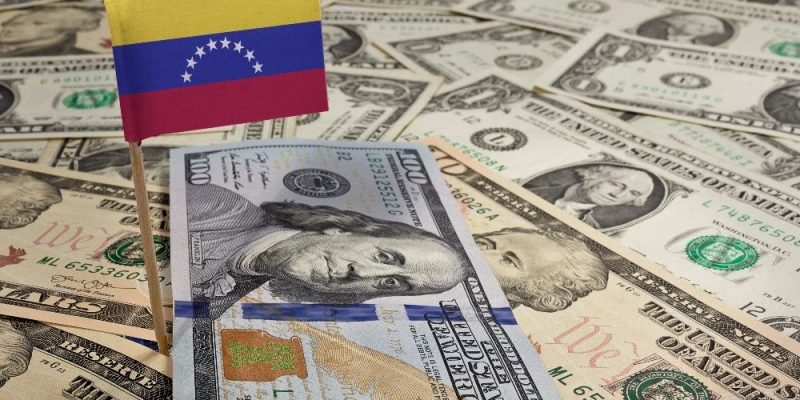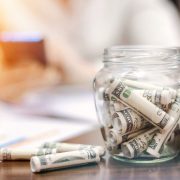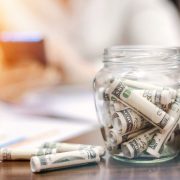
Venezuela’s once-promising investment landscape has drastically deteriorated, largely due to political turmoil and economic collapse.
Following the contested elections on July 28, foreign investors are increasingly wary of engaging with the country, as uncertainty and instability cloud its prospects.
Once seen as a lucrative destination for investment, particularly in the oil sector, Venezuela’s economic and political crises have severely undermined its appeal.
The fall of Venezuela’s investment appeal
Historically, Venezuela’s vast natural resources—especially its oil reserves, the largest in the world at an estimated 302 billion barrels—made it an attractive hub for international businesses.
But under President Nicolás Maduro’s regime, the country has spiraled into economic disarray.
Years of mismanagement, hyperinflation, and political instability have crippled its economy.
Between 2013 and 2021, Venezuela’s economy contracted by nearly 75%, one of the sharpest economic collapses globally.
The International Monetary Fund (IMF) projects further declines in GDP, reflecting the ongoing economic deterioration.
The country’s external debt has skyrocketed, with estimates exceeding $150 billion.
Venezuela defaulted on much of its debt, making it even riskier for investors.
US sanctions have isolated the country from the international financial community, discouraging all but a few investors from entering the market.
In contrast, neighboring countries like Brazil, Colombia, and Chile have flourished, attracting major international tech companies and banks that have long since departed Venezuela.
Sanctions and political isolation
One of the most significant barriers to foreign investment in Venezuela is the web of US sanctions.
These restrictions have limited Venezuela’s ability to engage in global financial markets and have forced foreign companies to reconsider their investments.
Meanwhile, Venezuela has turned to a small group of geopolitical allies, primarily China, Russia, and Iran, for financial support.
According to the Dialogue Center for InterAmerican Studies, China has invested more than $59 billion in Venezuela—nearly double what it has invested in any other Latin American country.
However, many of these loans, guaranteed by future oil sales, remain unpaid.
While Chinese investments have propped up the Maduro regime, they have done little to revive Venezuela’s broader economy.
Critics argue that these investments are more about securing geopolitical influence than fostering genuine economic growth.
Despite these challenges, trade between Venezuela and China reached $6 billion in 2021, a testament to their enduring partnership in the face of sanctions.
Investment risks in Venezuela
For potential investors, Venezuela’s bond market presents substantial risks.
Alejandro Grisanti, an economist at Ecoanalitica, highlights the elevated interest rates Venezuela must pay on its bonds, reflecting the country’s unstable economic and political situation.
The JPMorgan Emerging Market Bond Index (EMBI), which tracks sovereign debt in emerging markets, ranks Venezuela as one of the riskiest places to invest.
With much of its debt either restructured or in default, Venezuela’s bond yields are high, underscoring its persistent credit risk.
Grisanti points out that while other Latin American countries like Brazil and Mexico maintain more stable debt levels, Venezuela’s economic exposure is deeply troubling.
The country’s suspension of debt payments in 2017 and ongoing default by its state oil company PDVSA have cemented its reputation as a high-risk investment destination.
Venezuela’s inability to restructure its debts or improve its economic outlook further discourages foreign investment.
Source: JPMorgan Emerging Market Bond Index
Venezuela’s oil industry, once the backbone of its economy, is in dire need of foreign capital to recover.
The country’s oil production has plummeted, falling from over 2 million barrels per day to just a fraction of that.
Without significant investments in infrastructure and technology, Venezuela’s oil output is unlikely to rebound.
However, ongoing US sanctions, especially those targeting the oil sector, make it difficult for international companies to invest.
Grisanti warns that the outcome of the upcoming US elections could further complicate Venezuela’s investment outlook.
A more aggressive US stance could result in the reimposition of sector-specific sanctions or the withdrawal of licenses that Venezuela currently relies on to keep its oil industry afloat.
Such actions could stifle any potential recovery in the oil sector, prolonging the country’s economic stagnation.
Can Venezuela recover?
The combination of economic collapse, political instability, and sanctions has made Venezuela one of the least attractive places for foreign investment.
While China and Russia may continue their financial engagement with the Maduro regime, the broader global investment community remains largely cautious.
Venezuela’s future as an investment destination depends heavily on political and economic reforms, which remain unlikely under the current administration.
Without significant stabilization efforts, Venezuela’s investment outlook will continue to deteriorate.
Hyperinflation, debt defaults, and ongoing sanctions leave little room for optimism.
Investors looking for opportunities in Latin America are far more likely to turn to more stable economies, leaving Venezuela in a prolonged period of economic isolation and decline.
For now, Venezuela’s investment scenario looks bleak.
The country faces significant hurdles—both politically and economically—that hinder its ability to attract foreign capital.
While allies like China and Russia may provide short-term relief, long-term recovery seems unlikely without structural reforms.
Investors are likely to remain on the sidelines until meaningful changes are made, further delaying Venezuela’s return to economic stability.
The post Venezuela’s investment climate worsens amid political and economic turmoil appeared first on Invezz









